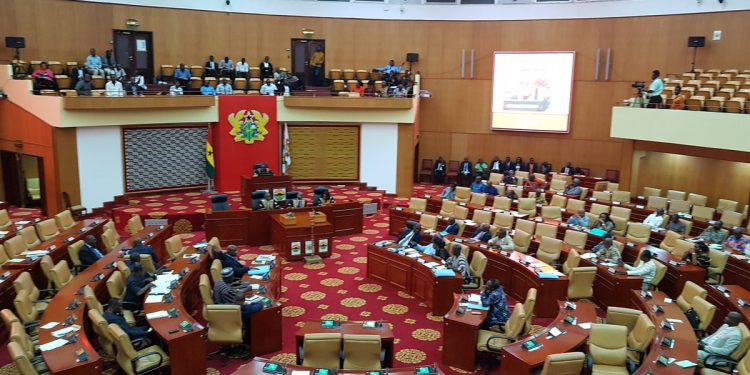The Action for Sustainable Development in Africa (MASDA) has called on Parliament not to ratify the Mining Lease Agreement between the government of Ghana and Barari Dv Ghana Limited.
Furthermore, MASDA said parliament must demand broader engagements from the minister as a precondition before any lease is eventually granted.
Barari DV Ghana Limited, a subsidiary of Australian-based Atlantic Lithium Limited, was granted a 15-year mining lease in October 2023 for the exploitation of lithium in the Ewoyaa area of the Central Region. The project, with a life of twelve years, is expected to produce approximately 350,000 tonnes of concentrate at 5.5-6 per cent lithium oxide.
MASDA is a not-for profit organisation that focuses on such key themes as the promotion of good economic governance, democracy, peace and security, youth empowerment, and sustainable development in Africa through collective action.
The Executive Director of MASDA, Atik Mohammed, at a press briefing in Accra Monday said the lease agreement stipulated in clause 20 that the company shall pay a royalty of ten per cent of total revenue.
According to him, although section 25 of (Act 703) is amended, and created room for the setting of royalty rates higher than the earlier five per cent, it did not set a specific rate.
“Therefore, the 10 per cent rate is discretionary and arbitrary. The implication is that Ghana might be earning less royalty income in the future from lithium when prices skyrocket; a phenomenon that is most likely in the light of the projected mad lithium rush again, this arbitrariness could mean different rates for different lease agreements in the future,” he said.
According to him, Ghana, as a lithium-blessed nation, must position itself in a good-stead to reap the benefits from these green minerals.
“Geological survey data have shown that Ghana has significant deposits of hard-rock and brine lithium. We must therefore, avert the recurrence of the tragedy that has characterised the mining of gold, diamond, and related minerals in our country,” he said.
Mr Mohammed said there was the need for engagements and a stakeholders consultations on the agreement, at least in the likeness of those that characterised the discovery of oil prior to the grant of any mining lease.
“Given that green minerals (especially lithium) will become substitutes for oil in the not distant future, one would expect wider engagements and consultations, at least in the likeness of those that characterised the discovery of oil prior to the grant of any mining lease,” he said.
He said the Minerals and Mining Act (Act 703) should be amended to reflect the peculiarities of these green minerals or have a separate green minerals regulatory and fiscal regime before any mining lease for lithium is granted.
According to him, as a pioneer agreement that would serve as a future reference or subsequent agreements, government’s desire for 13 per cent should be secured in a watertight manner.
This, he said would require an explicit amendment of section 43 of Act 703, adding that failure to do so was equivalent to negotiating a half-baked agreement which would not serve the country’s interest going forward.
Mr Atik called on the public to be interested in the agreement, ading “this issue must be of concern to every Ghanaian, especially the ordinary Ghanaian. We in MASDA would continue to canvass the issues and increase awareness on the need for adequate preparatory works before the grant of any mining lease on green minerals










Discussion about this post